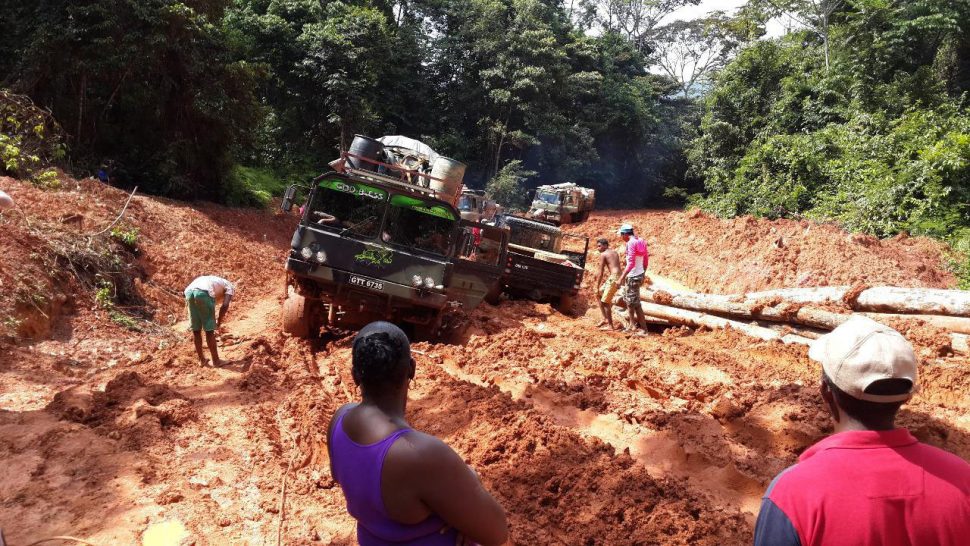The social, economic and national security significance of the retention of strong links between the hinterland and coastal regions of Guyana means that keeping lines of communication open, “whether these be by land, sea or air” ought of necessity to be “considerations of national priority,” Chief Executive Officer of Roraima Airways Gerry Gouveia told the Stabroek Business on Tuesday.
Speaking in the wake of recent reports regarding the serious deterioration of the Linden-Lethem road and the economic consequences and physical hardships deriving therefrom Gouveia told Stabroek Business that once access to our interior locations becomes “difficult or challenging” on account of difficulties encountered with the efficiency of any of the key modes of transport, “that situation should be treated as a national emergency.”
Last week, the Guyana Manufacturing & Services Association (GMSA) issued a statement on “the worsening conditions of interior roads” which it said was “causing suffering and losses to timber producers………across” the country and which it added provided “a very bleak outlook for many industries including forestry, mining, tourism, and trade.” In commenting on the GMSA’s release and the subsequent fallout, Gouveia said that it was his view that over a protracted period of time not nearly sufficient attention had been paid to the maintenance of interior roads.
As an aside the veteran aviator said that it was a matter of “particular concern” that the state of the interior roads and the social and economic consequences alluded to in the GMSA release had arisen simultaneously with concerns over the conditions of airstrips in the interior. “Actually, there is evidence of some effort being made to maintain some airstrips but it appears that we have a serious problem with capacity as far as contractors are concerned. There is evidence that much of the work is not properly done. In that context there may be need for more effective oversight.
Asked whether he was concerned over the simultaneous problems with interior roads and interior airstrips Gouveia said. ”If you are asking whether we can be reasonably comfortable with our aviation capacity in instances where the roads are bad, the answer is no. Aircraft cannot move the volume of goods that roads can. We cannot bring logs out of the interior. The other point that should be made is that there are some aspects of transporting cargo to the interior that require a complementary approach. You have cases in which trucks bring cargo by road to the foot of mountains and aircraft fly that cargo up.”
Whilst maintaining that over the years private sector efforts by businesses in the gold and timber industries had helped in the maintenance of the roads, Gouveia said that changing circumstances now required that there be a different approach to the maintenance of interior roads. “We have had a transformation over the years. There are emerging communities with needs of all sorts to be addressed. There is the growth and expansion of the extractive industries. I believe that in the case of timber the recent GMSA release points to just how important an economic factor the roads are. The GMSA had said in its release that at least 100,000 m3 of logs destined for delivery to markets on the coast could not be delivered and that as a consequence value-added manufacturers were complaining about the lack of raw material which is affecting exports. Gouveia told Stabroek Business that “going forward we need to take into account the wider economic consequences of critical roads that are not properly maintained.”
Asserting that the continued absence of a disciplined maintenance regime for interior roads including the Lethem road could eventually become a national disaster, Gouveia said that government needed to “become preoccupied” with the Linden-Lethem road. It’s quite obvious that from a strategic standpoint this ought, absolutely, to be a priority exercise. Frankly, it ought to be at least as important as oil and gas,” he added.
Revenues of many timber companies are down by 50% and more and which has an adverse effect on employment. Skilled workers are being sent home or the workforce being downsized due to the worsening condition of the roads. There are many small-scale loggers who are unable to stop working because of their financial commitments and such operators are putting their lives in danger and causing damage to their limited equipment.









